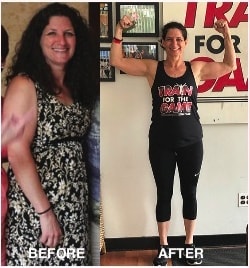Do you ever feel like you’re running on empty? Are you tired of struggling to stay awake throughout the day? If you're looking for a natural and healthy way to boost your energy levels, you’re in the right place. In this blog post, we’ll be discussing the 6 best ways to boost energy with your diet. From adding certain foods to your meals to cutting out others, we’ll give you the tips and advice you need to get the energy you need to power through your day.
1) Start your day with protein
Starting your day off with a protein-rich breakfast is one of the best ways to ensure your body gets the energy it needs throughout the day. Eating protein helps build and repair muscle, while also providing sustained energy levels and improved mental focus.
Examples of protein-rich breakfast foods include eggs, oatmeal, Greek yogurt, cottage cheese, quinoa, chia seeds, nut butter, and nut milks. Try pairing these foods with some whole grain toast or a banana for extra energy throughout the day. If you’re short on time in the morning, try making a protein smoothie with your favorite fruits and veggies. Not only will this give you an extra boost of energy, it’s a great way to get your daily servings of fruits and veggies too.
2) Eat more healthy fats
Healthy fats are an important part of a balanced diet, and they can help to boost energy levels. Healthy fats provide long-lasting energy, because they are digested more slowly than other macronutrients. They also help to keep your blood sugar levels stable, so you don’t experience the “sugar rush” followed by a crash that can happen when you eat high-carb meals.
Foods rich in healthy fats include avocados, nuts and seeds, coconut oil, olive oil, fatty fish like salmon and mackerel, and eggs. Try incorporating some of these foods into your daily diet for a sustained energy boost throughout the day.
3) Incorporate leafy greens into your diet
Leafy greens are an essential part of a healthy diet, and they can also help to boost your energy levels. Leafy greens are packed with essential vitamins and minerals like vitamin A, vitamin K, and magnesium, as well as fiber to help keep you feeling fuller for longer. They’re also rich in antioxidants, which help to fight off free radicals that can cause fatigue.
There are many different ways to add leafy greens to your diet. You can incorporate them into salads, sandwiches, wraps, omelets, smoothies, and even pasta dishes. You can also try adding kale or spinach to soups or sauces for an extra nutritional punch.
Another way to get more leafy greens into your diet is to use them as side dishes. Roasted Brussels sprouts, steamed asparagus, or wilted spinach are all great options. You can also try adding a handful of baby spinach leaves to your morning smoothie for a quick and easy energy boost.
By incorporating more leafy greens into your diet, you’ll be able to get more essential vitamins and minerals into your body. This will help keep your energy levels up throughout the day, so you’ll be able to tackle any tasks that come your way.
4) Drink plenty of water
Water is essential for life and it’s important to stay hydrated throughout the day. Water helps your body to better absorb nutrients, flush out toxins, regulate body temperature, and keep your energy levels up. When you're dehydrated, your body will feel fatigued and sluggish. Aim to drink 8-10 glasses of water every day to keep your body hydrated and your energy levels up. You can also include other hydrating drinks such as herbal teas, juices, and coconut water. Staying hydrated will help you to stay alert and energized throughout the day.
5) Eat small, frequent meals
Eating small, frequent meals throughout the day is a great way to maintain your energy levels. Eating a few small meals spaced out over the course of the day can help keep your metabolism active and provide consistent energy. Aim for three balanced meals and two or three healthy snacks in between. Choose nutrient-rich foods such as lean proteins, whole grains, fruits, and vegetables to provide sustained energy.
To make sure you don’t overeat and cause an energy crash, try to keep each meal or snack to 200-300 calories. When selecting your snacks, reach for protein-packed options such as yogurt, nuts, or eggs. Protein will give you longer-lasting energy compared to simple carbs, which are quickly digested and can cause your blood sugar to spike and then drop.
Eating small, frequent meals is a great way to keep your energy levels up throughout the day and prevent that mid-afternoon slump. Try to make healthy choices when you can and enjoy small portions.
6) Avoid energy zappers
We all want to stay alert and energized throughout the day, but there are certain foods that can zap your energy and make you feel sluggish and tired. These energy zappers are generally high in sugar, simple carbohydrates, and processed ingredients. Here are some of the most common energy zappers to avoid:
- White breads, pastas, and cereals: All of these contain simple carbohydrates, which can cause a quick spike in blood sugar followed by a crash. Opt for whole grain options instead.
- Sugary drinks: Sodas, sports drinks, and other sweetened beverages are full of sugar and empty calories that can spike your blood sugar and give you an initial burst of energy followed by a crash. Stick to water or unsweetened tea instead.
- Processed snacks: Many pre-packaged snacks are full of sugar and refined carbohydrates. Try to opt for more nutrient-dense snacks like nuts, fruits, and vegetables.
By avoiding energy zappers like white breads, sugary drinks, and processed snacks, you’ll be able to keep your energy levels steady throughout the day.


